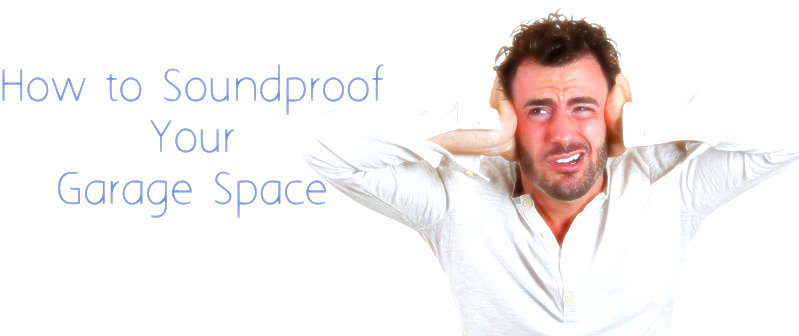With the car in use during the day or parked in the driveway or side of the street, the garage can be an extra room in the house. For those who want to give themselves or their children a room to practice music with others, the garage can be a large space indoors that’s isolated from other parts of the house. To make the sound from travelling further from the garage, there are some renovations that could soften the music. In addition, the garage as it is may not be optimal for acoustics. Soundproofing the garage can have benefits for those inside the house and the musicians inside the garage.
Main Strategies to Handle Loud Sounds
You can absorb the sound or block it. Sound can be blocked through solid walls and insulation on the inside of the walls. Perfectly isolating the sound is impossible and trying to achieve it would be expensive, but it is possible to reduce the volume of the music played so that reading is possible. It would be no more noisy than flipping through a magazine in a moderately busy cafe. To get a better sense of the actual music being produced, consider absorbing waves to minimize reverberation and echo.
Target All Parts of the Room
The walls, floors, and ceilings can transmit sound. If you don’t have a garage, soundproofing is not necessary. Similarly, single-story houses or bungalows will not need soundproof renovations for the ceiling. Still, you can improve the acoustics of the room by applying sound wave absorbing materials to these surfaces.
For the typical concrete floor of the garage, lay down carpeting to reduce the bouncing of the waves. For ceilings, consider a dropped ceiling. Higher-end variations will come with a fibreglass core and a vinyl backing. The walls will benefit the most from vinyl barriers.
A Separate Building Works Best
A detached garage adds a layer of air between the walls of buildings. Although thick walls can trap sound, some of the sound waves will travel through solid materials. If you have a detached garage in addition to the typical garage, choose the one that’s farther from your home.
The most effective way to soundproof the garage involves turning it into a mostly airtight room. Your garage will probably be sealed, as local building codes generally protect the home from fumes like exhaust and Carbon Monoxide from entering the house. Reduce the amount of air, and therefore sound, that can escape the room by going into the walls. The seal should also go around the openings of doors and windows. Proper ventilation is important for good air circulation. Vents and fans will be key for making sure that people feel comfortable during intense rehearsals.
You may be inclined to layer drywall to create a barrier or line walls with a soft lining to absorb the sound. As mentioned above, a layer of air is an effective way to stop music from travelling along the walls and ceilings. You can recreate the effect of a detached garage by basically creating a room within a room. If you’ve already gone to the lengths of sealing the garage, it’s not much additional work to create a separate set of walls. Between the different layers, there should be at least a 10mm gap between the different materials. In total, you may not lose too much space in the garage.
Now that you can rebuild the walls of the garage, a layer of sheetrock will go a long way to trap the sound waves. The sheetrock ideally will not directly touch the wall itself. Instead, it can be hung. Lofty material, such as a sound batt, can fit between the wall and the sheetrock. The batt has more air pockets than fibreglass insulation, which is great for mitigating noise. You can also install wall storage cabinets after rebuilding the walls.
As with any serious home renovation, it’s important to make sure the improvements are up to code. The additions should not interfere with the vapour barrier or fume-proofing. In addition, the sheetrock will add a significant load to the structure. Consult a contractor to make sure that the load can be supported.
Additionally, depending on how close you are to your neighbours, they may not have the same protection from or appreciation of the music being practiced. Always observe local bylaws regarding late night music. Since the garage door is the one surface that can take little to no modification, the neighbours directly across from you will be able to hear any rehearsals as well.
Author Bio:
Hi, my name is Jonathan baker. I am an interior designer working as a freelancer in Canada and my work mainly focuses on individual apartments, villas and office spaces. I have a keen interest in home improvement, business, and self storage. I love to interact with people providing them expert and economical solutions in home improvement and business.
